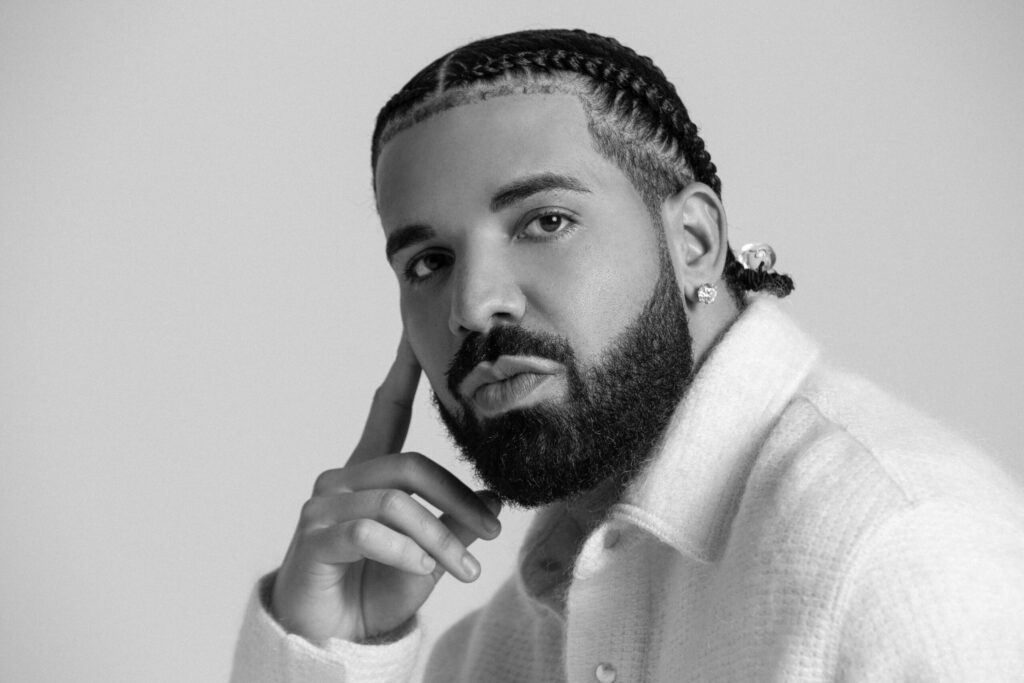Drake dismisses claims that rap is “dead,” asserting its endurance during a live chat with streamer Adin Ross. The rapper remains confident in its legacy.
The conversation began when Ross boldly declared, “Rap is dead.” Without hesitation, Drake countered the statement, saying, “It’ll never die. It was a weird NBA season. New season starts in five days.” His response was brief but clear, underscoring his unwavering belief in rap’s enduring legacy.
Drake’s comments come amid ongoing debates about the state of rap music. Earlier this year, Nigerian afrobeats superstar Wizkid stirred controversy by claiming in an international interview that “rap is dead.” His statement sent shockwaves across the music world, sparking heated discussions on social media and among music enthusiasts.
Controversial claim
Wizkid’s remark didn’t go unnoticed. Many prominent rappers, including Terry Tha Rapman, Zoro, and Ladipoe, publicly disagreed. They argued that rap remains a powerful and evolving genre, pointing to its influence on global culture and music trends. Fans and critics alike joined the conversation, turning the topic into a hot-button issue.
Some saw Wizkid’s comment as an attempt to elevate afrobeats, a genre experiencing massive global success. Others interpreted it as a direct critique of rap’s current direction. Regardless of intent, the statement highlighted a growing conversation about the relevance and adaptability of rap music in a changing industry.
Drake’s defense of rap
Drake’s response adds weight to the argument that rap is far from obsolete. As one of the genre’s most successful artists, he has consistently pushed boundaries with his music. From hard-hitting rap verses to genre-blending tracks, Drake’s career exemplifies the versatility and resilience of hip-hop.
By dismissing the “rap is dead” claim, Drake aligns himself with a broader sentiment shared by many in the industry. For artists and fans alike, rap remains a vital form of expression. It continues to address social issues, inspire new generations, and dominate streaming platforms worldwide.
Why rap will endure
Rap’s staying power lies in its ability to adapt. Over the years, it has evolved from underground movements to mainstream success. Artists experiment with different sounds, merging rap with elements of pop, R&B, and electronic music. This innovation ensures that the genre remains relevant and appealing to a diverse audience.

Moreover, rap serves as a voice for the marginalized. It provides a platform for storytelling, tackling themes like inequality, resilience, and personal struggles. This authenticity resonates deeply with listeners, making rap more than just a musical style—it’s a cultural force.
The broader context
It’s worth noting that claims about a genre’s decline aren’t new. Throughout music history, critics have frequently questioned the longevity of certain styles. However, these predictions often fail to account for music’s cyclical nature. Just as rock and jazz have evolved and thrived in new forms, so too has rap.
Today, rap dominates global charts and festivals. Rising stars and established legends alike continue to release music that captivates audiences. From New York to Lagos, Tokyo to Toronto, rap’s influence knows no borders.
Global perspective
Wizkid’s comments also reflect the rise of afrobeats as a global powerhouse. The genre’s popularity has surged, with artists like Burna Boy, Tems, and Wizkid himself achieving international acclaim. While afrobeats and rap are distinct, they share common roots and often intersect creatively.
This crossover highlights the interconnectedness of modern music. Artists draw inspiration from multiple genres, creating fresh sounds that defy categorization. Rather than competing, genres like rap and afrobeats can coexist and enrich each other.
Looking ahead
Drake’s confident assertion that rap will “never die” serves as a reminder of the genre’s resilience. As music evolves, rap continues to adapt, proving its relevance time and again. Artists experiment, audiences engage, and the culture thrives.
The ongoing debates about rap’s future underscore its significance. Whether celebrated or criticized, rap remains a focal point of global music conversations. Its impact on culture, fashion, and politics is undeniable, and its story is far from over.
For fans, Drake’s words are a reassurance. For critics, they’re a challenge to reconsider the genre’s depth and potential. One thing is clear: rap is here to stay, and its influence will continue to shape the music world for years to come.
Read Also: Drake: “I used to look up to them”



